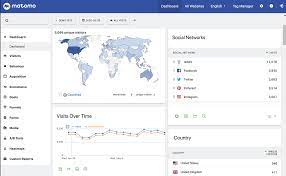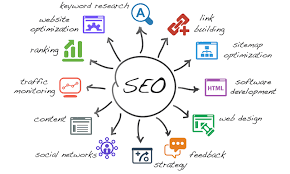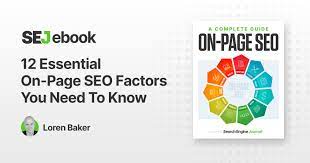Unlocking the Potential: Leveraging Google Website Analysis for Digital Success
The Power of Google Website Analysis
In the world of digital marketing, understanding how your website performs is crucial for success. Google Website Analysis is a powerful tool that provides valuable insights into the performance of your website, helping you make informed decisions to improve its visibility and effectiveness.
Key Features of Google Website Analysis:
- Website Traffic: Google Analytics tracks the number of visitors to your site, their demographics, behaviour, and more. This data helps you understand who your audience is and how they interact with your site.
- Conversion Tracking: By setting up goals in Google Analytics, you can track specific actions that users take on your website, such as making a purchase or signing up for a newsletter. This helps you measure the effectiveness of your marketing campaigns.
- SEO Insights: Google Website Analysis provides information on which keywords drive traffic to your site, how well your site ranks in search results, and opportunities for improving your SEO strategy.
- Page Performance: You can analyse the performance of individual pages on your website, including page load times, bounce rates, and user engagement metrics. This helps you identify underperforming pages that need attention.
- Mobile-Friendly Analysis: With the rise of mobile usage, Google Analytics offers insights into how well your site performs on mobile devices. This information is crucial for ensuring a seamless user experience across all devices.
Benefits of Using Google Website Analysis:
By leveraging the data provided by Google Website Analysis, businesses can:
- Optimise their website for better user experience and increased conversions
- Create targeted marketing campaigns based on audience insights
- Improve search engine rankings through effective SEO strategies
- Mitigate issues such as high bounce rates or slow page load times
- Evaluate the success of online advertising efforts and make data-driven decisions
In conclusion, Google Website Analysis is an invaluable tool for any business looking to maximise the potential of their online presence. By harnessing the power of data-driven insights, businesses can enhance their digital strategies and achieve sustainable growth in today’s competitive landscape.
8 Essential Tips for Effective Google Website Analysis
- Set up goals to track important actions on your website.
- Use UTM parameters to track the effectiveness of your marketing campaigns.
- Regularly check and analyse your website’s bounce rate.
- Utilise the Behavior Flow report to understand how users navigate through your site.
- Monitor your website’s loading speed using Google Analytics Site Speed reports.
- ‘Acquisition’ reports can help you identify which channels are driving traffic to your site.
- ‘Audience’ reports provide insights into the demographics and interests of your website visitors.
- ‘Conversion’ reports can help you track the performance of specific conversion goals over time.
Set up goals to track important actions on your website.
Setting up goals to track important actions on your website is a key tip in utilising Google Website Analysis effectively. By defining specific goals such as purchases, sign-ups, or other conversions, you can measure the success of your website and marketing efforts. Tracking these actions provides valuable insights into user behaviour and helps you understand what drives engagement and leads to desired outcomes. With goal tracking, you can make informed decisions to optimise your website for better performance and ultimately achieve your business objectives more efficiently.
Use UTM parameters to track the effectiveness of your marketing campaigns.
To enhance the effectiveness of your marketing campaigns, utilise UTM parameters in Google Website Analysis. By incorporating UTM parameters into your campaign URLs, you can track and analyse the performance of different marketing initiatives with precision. This invaluable data allows you to identify which campaigns are driving traffic, conversions, and engagement on your website. By leveraging UTM parameters, you can make informed decisions to optimise your marketing strategies and allocate resources where they yield the best results.
Regularly check and analyse your website’s bounce rate.
Regularly monitoring and analysing your website’s bounce rate is a crucial aspect of Google Website Analysis. The bounce rate indicates the percentage of visitors who navigate away from your site after viewing only one page. By keeping a close eye on this metric, you can gain valuable insights into the effectiveness of your website in engaging visitors. A high bounce rate may signify issues such as irrelevant content, slow loading times, or poor user experience, prompting you to make necessary improvements to retain visitors and enhance overall website performance.
Utilise the Behavior Flow report to understand how users navigate through your site.
Utilising the Behavior Flow report in Google Website Analysis is a valuable tip for gaining insights into how users navigate through your site. This report provides a visual representation of the paths users take as they move from one page to another, helping you identify popular pages, drop-off points, and potential areas for improvement. By understanding the user journey within your website, you can optimise the navigation, content layout, and calls to action to enhance user experience and ultimately drive conversions.
Monitor your website’s loading speed using Google Analytics Site Speed reports.
Monitoring your website’s loading speed is essential for providing a seamless user experience and improving your site’s performance. With Google Analytics Site Speed reports, you can track and analyse the loading times of your web pages across different devices and browsers. By identifying areas where loading speed can be optimised, you can enhance user satisfaction, reduce bounce rates, and potentially improve your search engine rankings. Regularly monitoring your website’s loading speed through Google Analytics Site Speed reports allows you to make data-driven decisions to ensure that your site delivers a fast and efficient browsing experience for visitors.
‘Acquisition’ reports can help you identify which channels are driving traffic to your site.
The ‘Acquisition’ reports within Google Website Analysis provide valuable insights into the various channels that drive traffic to your website. By utilising these reports, you can identify the specific sources that are bringing visitors to your site, whether it be organic search, paid advertising, social media, or direct traffic. Understanding which channels are most effective in driving traffic allows you to focus your marketing efforts and resources on strategies that yield the best results, ultimately helping you maximise your online visibility and reach your target audience more effectively.
‘Audience’ reports provide insights into the demographics and interests of your website visitors.
The ‘Audience’ reports in Google Website Analysis offer valuable insights into the demographics and interests of your website visitors. By utilising this feature, you can gain a deeper understanding of who your audience is, including their age, gender, location, and interests. This information is instrumental in tailoring your content and marketing strategies to better resonate with your target audience, ultimately enhancing user engagement and driving conversions on your website.
‘Conversion’ reports can help you track the performance of specific conversion goals over time.
Understanding the performance of specific conversion goals is essential for measuring the success of your website and marketing efforts. By utilising ‘Conversion’ reports in Google Website Analysis, you can track the progress of these goals over time, gaining valuable insights into user behaviour and the effectiveness of your strategies. Monitoring and analysing conversion data allows you to make informed decisions to optimise your website for better results and ultimately improve your overall digital marketing performance.







